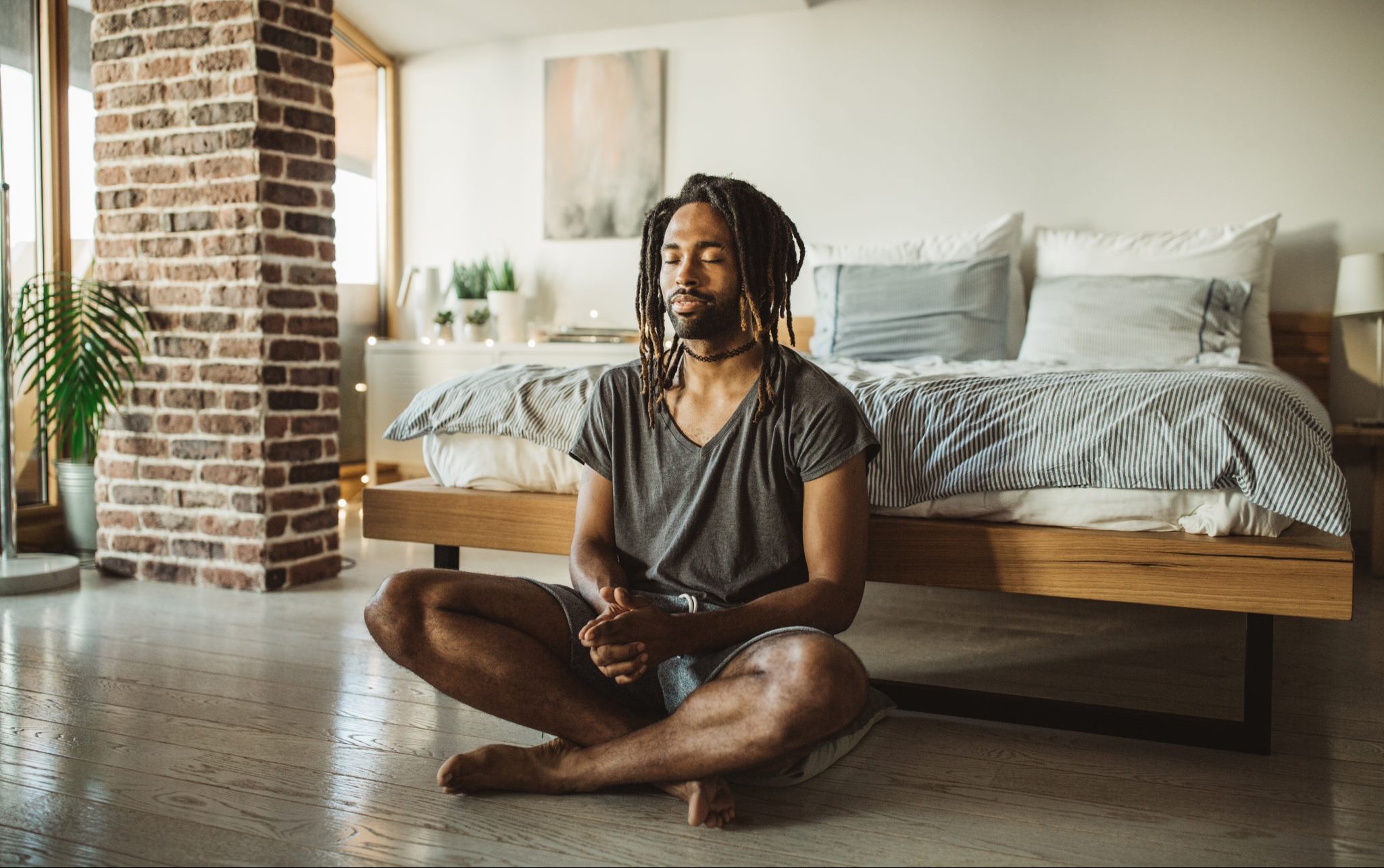Why You Should Try Meditation When Sleep
So, instead of waiting around for the issue to get serious, it’s better to stop it in its tracks. If you have noticed recurrent signs of insomnia within a short interval (once a week or once every two weeks), don’t postpone a visit to a sleep specialist. The sooner, the better, because usually temporary insomnia can go away just by practicing good sleep hygiene and by adopting healthy bedtime habits. As simple as that.
How can meditation help?

If you have trouble falling asleep from time to time it might mean that your brain is involved in too much mental activity. The more you’re unable to fall asleep the more you keep fixating on this inability which makes falling asleep even more difficult. Meditation for sleep can be a sweet relief from your racing thoughts. It balances out excessive brain activity, lowers heart rate, and focuses on calming your mind with the help of breathing. Simply put, when we meditate, we enter a state of deep relaxation which leads to deeper sleep.
Due to many flaws in traditional treatments, people suffering from insomnia often turn to other options that may help them deal with their sleep problem, such as acupuncture, herbal treatments, yoga and meditation.
But can meditation really help fight chronic insomnia, alone or as a part of the treatment?
The research study conducted by the Rush University Medical Center showed it can. 54 people participated in the study, the aim of which was to evaluate the efficacy of mindfulness meditation for treatment of chronic insomnia. It went on for eight consecutive weeks and showed a significant reduction in total wake time of the participants.
But it didn’t end there. Not only did mindfulness-based therapy help these people sleep better during the study, it also showed high rates of treatment remission through the follow-up, and these rates remained largely stable over time. All in all, it proved that meditation can be seriously considered to be a viable treatment option for people with chronic insomnia and be a great alternative to traditional treatments.
Breathing meditation to help you fall asleep faster

Just like any other mindful practice, the meditation that helps you sleep or fall back asleep boosts your awareness of the present moment in which you choose a calming focus (a perfect day in your life, a pleasant sound or a color that soothes you) and observe the flow of your breath.



